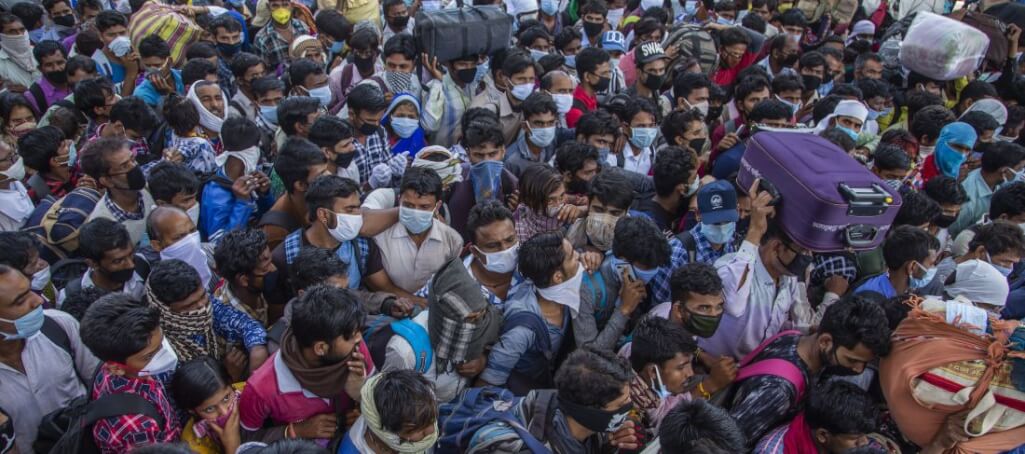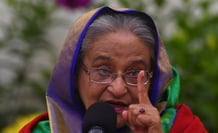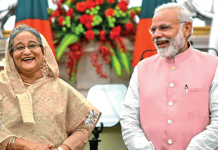Governments globally are currently occupied with the coronavirus pandemic, most are concerned over the clashing policies between lockdowns to save the capacity of public health institutions and the need to end lockdowns to revive the economy, which the International Monetary Fund predicts will be the worst downturn since the great depression. While politicians have traded barbs in the West over how to manage the pandemic, it has been a political battle between the politicians and the elected branches of government. The courts have remained quiet in perfect adherence to constitutional theory since they are neither elected nor qualified to deal with a pandemic. The courts in the West have only regulated their own judicial institution in the face of the worldwide pandemic.
While the courts in the West understand that political, social and legal theories all encapsulate the core principle of jurisprudence that there are matters where the courts do not have jurisdiction due to their lack of expertise and since they do not draw their power from the earth (they are not elected), a declaration of war or a pandemic, for instance, the courts of the subcontinent (Pakistan, India and Bangladesh) have routinely interfered in matters that are non-justiciable, i.e. incapable of resolution through the judicial procedure and not within their domain. This interference however now can pose as the greatest challenge in fighting the novel virus along with high rates of poverty and social inequality.
The Indian Supreme Court has ordered both public and private medical labs across the country to not charge patients for testing for Corona Virus. The Supreme Court essentially overturned the March 17 advisory of the Indian Council of Medical Research which capped an amount for testing in private hospitals and labs. As Stephanie Findlay wrote that the Supreme Court’s order that tests must be free could stop private labs from boosting capacity. The Indian Supreme Court has entered unchartered waters by challenging the wisdom of the government in its fight against a pandemic, churning out a humanitarian ruling but damaging the fight in the long run as India is already one of the least tested country population-wise. The decision taken by the government to ramp up testing has been set at nil by the ruling.
Similarly, a High Court in Bangladesh has issued five directives to prevent Coronavirus infections, once again meddling with the domain of the executive branch to control the pandemic. The court ordered the highest-ranking civil servant of the country to ask all the deputy commissioners (district officers) to monitor the treatment and welfare of the people returned from abroad and also asked the government to explain why it should not be asked to provide all basic needs to the arrivals during the period of quarantine.
In a similar vein, perhaps in a much worse fashion, the Pakistani Supreme Court has on its own initiative (without any formal petition) started hearing a case related to the situation arising out of the Coronavirus crisis and the steps being taken by the federal and provincial governments. In its first hearing on 13th April, the Chief Justice of Pakistan passed remarks on the performance of the federal and provincial governments of the country, praising some while chastising others. It went so far as to suggest to the government to remove the top health official of the country during a pandemic. Even after submitting a comprehensive report, the Prime Minister of Pakistan was unhappy with the top health official Zafar Mirza opining that he should have presented a more substantial response to the apex court when he was asked about the government’s measures.
One may not expect too much from South Asian courts, the Pakistani Supreme Court has previously on its own motion without a formal petition started a campaign to fund and build a dam in the country, wherein television channels were asked to air free advertisements in support of the fund. The Chief Justice of Bangladesh had to flee his country after ruling a constitutional amendment illegal and the next day the Supreme Court of Bangladesh issued a rare statement alleging that the absconding Chief Justice is facing 11 charges, including money laundering and corruption. In India, an ex-Chief Justice who had held a press conference as a judge of the Supreme Court against the then Chief Justice who was at odds with the government was appointed to the Rajya Sabha (upper house of Parliament) four months after his retirement.
Clearly, the state of the judiciary in South Asia is not satisfactory, and at this time of the pandemic, the courts of South Asia have to realize that if they do not stop needless intervention with the work of the executive branches, they will seriously hurt the fight against the Coronavirus in South Asia.














